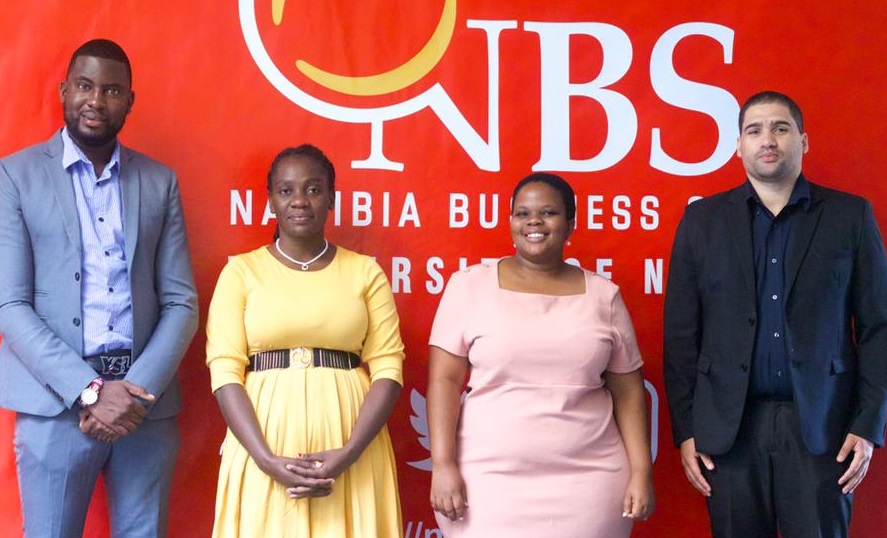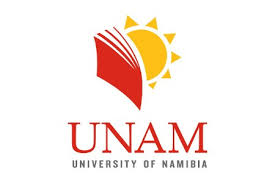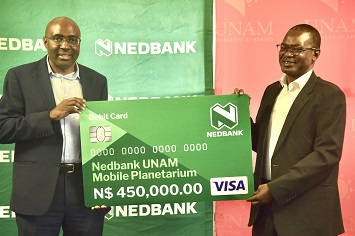
Namibia Business School excels at Africa Business Concept Challenge

The Namibia Business School (NBS) has hailed its students who helped the institution finish in the top five at the Africa Business Concept Challenge held virtually last month.
The Africa Business Concept Challenge is a competition aimed at promoting responsible capitalism, identifying high potential young people for mentorship and investment.
The competition was held virtually on 12 April and the winners were announced last week.
The Lagos Business School from Nigeria won first place and bagged US$5000, for designing an Aquatrac Sustainable Fish Consumption. The Lagos School also won second place for their Modular Housing Concept, while Kwame Nkrumah University of Science and Technology in Ghana came third.
The Namibia Business School and Botswana International University of Management rounded off the top five in no particular order.
The NBS, which is a business school wing under the University of Namibia (UNAM) sent a team named Crystal Water. Crystal Water, which had four members, competed against over 80 student teams from 34 institutions in 15 countries across Africa for five weeks.
The team designed a water retaining system that retains water in the soil. Team leader Franky Gonteb was joined by Jacobina Haiduwa, Bojelo Plaatije-Dube, and Angelo Kloppers.
NBS Director Professor Grafton Whyte said that the Africa Business Concept Challenge is a truly great initiative. He hailed the performance by the team that represented the institution.
“The Namibia Business School was proud to be a competitor in this inaugural event and for our Crystal Water team to have made it to the final five product concepts was indeed a humbling experience,” he said.
The competition challenged student teams to design a viable business concept that addresses a locally-relevant challenge or problem related to sustainable development and Agenda 2063.
Team leader Franky Gonteb said their project centered on a recycling system designed to keep the soil moist. “The design was inspired by a desire to reduce the devastating impact of drought in Namibia specifically and southern Africa as a whole,” he added.
According to Gonteb the competition was exciting yet nerve wrecking as it was held in a fast paced spirit where they had to deliver different tasks and information almost every two days.
“It was a nerve wrecking competition but in the end I am happy with what the team did and the effort they put in. It was definitely a lesson learnt. We are proud of the fact that we even defeated institutions from big countries like South Africa,” he said.
Katrina Simon-Agolory who was mentoring the team said it has been an honour guiding the team.
Mentors were required to guide teams and enrich the learning experience. This is because one of the objectives of the challenge is to build a community platform for learning–not just a competition but an opportunity for mutual support.
“Most rewarding for me as an educator has been witnessing the deepening of their analytical skills around the product and the business,” said Simon-Agolory who manages the project management programme at the Namibia Business School.
The competition required student teams to engage in a four-phased project development process where ideas, products and/or services are put up for sale on a virtual stock market on the Peaqs platform. Projects were accepted on the basis that they define a challenge and/or a need and demonstrate a business idea to address it.
The students were required to find a viable business concept, address a community challenge or need, find a business solution then implement and impact the business solution.
Apart from the US$5000 cash prize there were other benefits of participating in the competition. These include, mentoring from experienced entrepreneurs, business professionals and leading academic faculty members.
The participants also got an opportunity to interact with high-caliber, experienced judges, who are accomplished entrepreneurs and industry leaders. Furthermore the participants received personalised, individual feedback during the project development process on the Peaqs platform.












































